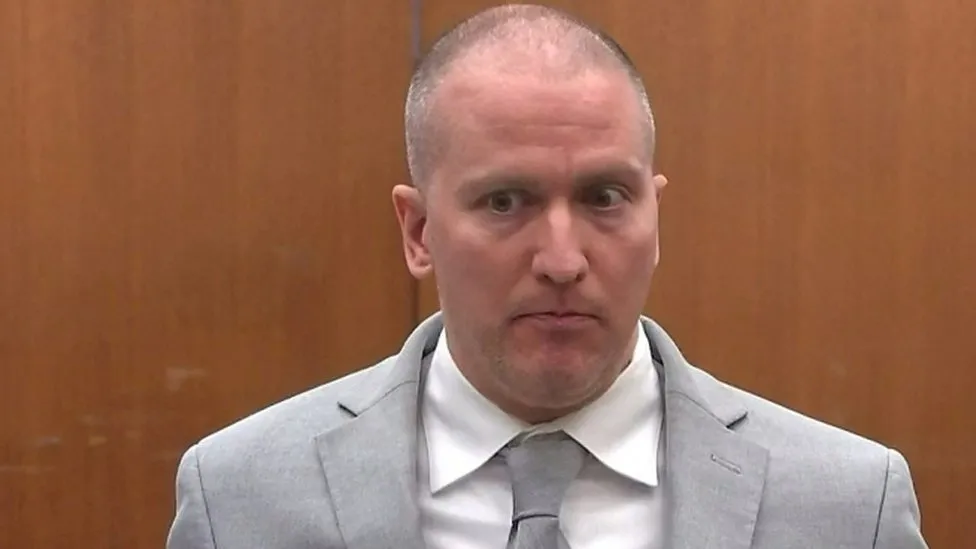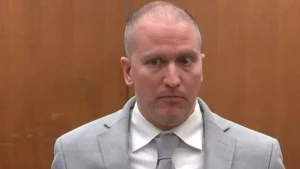Derek Chauvin: A Case That Shook the Nation
The name Derek Chauvin became synonymous with one of the most impactful and contentious cases in recent memory. Formerly a Minneapolis police officer, Chauvin’s involvement in the tragic death of George Floyd sparked a series of events that reverberated across the nation and beyond.
The Incident That Captivated the World
On May 25, 2020, a distressing video circulated widely, depicting Chauvin kneeling on George Floyd’s neck during an arrest. Floyd’s desperate pleas for air and mercy, echoed by bystanders, drew global outrage and triggered widespread protests against police brutality and racial injustice.
The Trial and Verdict
Chauvin faced trial on charges of second-degree unintentional murder, third-degree murder, and second-degree manslaughter. The courtroom proceedings were meticulously watched as testimonies, evidence, and legal arguments unfolded. The nation held its breath as the jury delivered a guilty verdict on all counts in April 2021.
Impact on Communities and Policing
The case thrust systemic issues into the spotlight, sparking impassioned discussions about police conduct, racial disparities, and the need for social justice reform. It ignited debates on the role of law enforcement and highlighted deep-seated issues affecting marginalized communities.
Legal and Social Implications
Chauvin’s conviction was seen as a landmark moment in the fight for police accountability, symbolizing a step towards justice for victims of police violence. It prompted introspection within law enforcement and triggered calls for systemic changes in policing practices and racial equality.
Sentencing and Beyond
In June 2021, Chauvin received a 22.5-year prison sentence, a decision met with mixed reactions. The case, far from being just a trial, represented a turning point in social consciousness, leading to calls for sustained advocacy and reform efforts.
Global Repercussions
Beyond U.S. borders, Chauvin’s trial and its outcome resonated worldwide, sparking solidarity movements against racial injustice and police brutality on a global scale.
Legacy and Lessons Learned
The case of Derek Chauvin and George Floyd became a pivotal moment in contemporary history, leaving an indelible mark on society. It brought to the forefront issues of accountability, justice, and the urgent need for meaningful societal change.
Continuing Dialogue and Progress
While Chauvin’s trial concluded, the larger conversation it ignited continues. It serves as a catalyst for ongoing discussions, activism, and legislative efforts aimed at fostering a more just and equitable society for all.
Conclusion
The Derek Chauvin case transcended a singular event; it ignited a movement for social justice and police reform. It reminded the world of the power and responsibility inherent in the pursuit of fairness, equality, and accountability.
here are 50 facts about Derek Chauvin along with information about his net worth and lifestyle:
Facts about Derek Chauvin:
- Early Life: Derek Michael Chauvin was born in 1976 in Oakdale, Minnesota.
- Law Enforcement Career: He served as a police officer with the Minneapolis Police Department for nearly two decades.
- Training and Experience: Chauvin had training in various areas, including crisis intervention, use of force, and firearms.
- Incident Involving George Floyd: He was the primary officer involved in the arrest of George Floyd on May 25, 2020.
- Arrest and Charges: Chauvin was charged with second-degree unintentional murder, third-degree murder, and second-degree manslaughter.
- Trial and Conviction: He faced trial and was found guilty on all counts related to George Floyd’s death in April 2021.
- Sentencing: Chauvin received a 22.5-year prison sentence for the murder of George Floyd.
- Marriage: He was married to Kellie Chauvin, who filed for divorce shortly after the incident involving George Floyd.
- Use of Force Complaints: Records show Chauvin was involved in multiple use-of-force incidents throughout his career.
- Protests and Civil Unrest: Floyd’s death sparked widespread protests against police brutality and racial injustice worldwide.
- Retired Police Officer: Chauvin was no longer a member of the Minneapolis Police Department after his arrest.
- Body Camera Footage: Portions of the incident involving Floyd were captured on body cameras worn by Chauvin and other officers.
- Public Scrutiny: His actions during the arrest were heavily scrutinized and debated in the media and public forums.
- Pretrial Publicity: The case against Chauvin gained extensive media attention and was closely followed by the public.
- Impact on Policing: Floyd’s death sparked discussions and debates about police reform and accountability.
- Legal Defense: Chauvin’s defense team argued various factors, including the use of force and Floyd’s health conditions.
- Impact on Communities: The incident had a profound impact on communities, leading to discussions about systemic racism and police-community relations.
- Witness Testimonies: Multiple witnesses, including bystanders and medical experts, testified during the trial.
- Verdict Reactions: The guilty verdict sparked a mix of emotions, relief for some and disappointment for others.
- Appeals and Legal Proceedings: Chauvin’s legal team announced plans to appeal his conviction.
- Media Attention: The trial was broadcasted live, drawing massive viewership.
- Impact on Law Enforcement: The incident prompted calls for changes in police practices and training nationwide.
- Chauvin’s Silence: He chose not to testify during the trial.
- Prison Sentence: Chauvin was sentenced to serve time at a state correctional facility in Minnesota.
- Controversy and Debate: The case fueled debates about systemic racism, policing, and the criminal justice system.
- Heightened Awareness: The incident prompted discussions about the treatment of minorities by law enforcement.
- Mental Health Concerns: The trial and its aftermath raised awareness about mental health challenges faced by many.
- International Response: The incident and trial received global attention and condemnation.
- Use of Video Evidence: Video footage of Floyd’s arrest played a crucial role in the trial.
- Impact on Sentencing: Chauvin’s sentence was seen as a significant moment in the fight against police brutality.
- Public Perception: His actions during Floyd’s arrest were widely condemned by the public.
- Impact on Law Enforcement Training: The incident prompted discussions about reforming police training programs.
- Political Implications: The case was a focal point in discussions about police reform in the United States.
- Reactions from Floyd’s Family: The guilty verdict was welcomed by George Floyd’s family.
- Witness Testimonies: Testimonies from bystanders and experts played a crucial role in the trial.
- Chauvin’s Background: He had a history as a police officer, having served in various capacities within the Minneapolis Police Department.
- Divorce Proceedings: His divorce from Kellie Chauvin was finalized following his conviction.
- Prison Conditions: Chauvin was placed in a high-security prison in Minnesota.
- Public Safety Concerns: His presence in prison raised concerns about potential threats to his safety.
- Media Interviews: Chauvin did not grant interviews or make public statements after his conviction.
- Legal Representation: He was represented by a team of defense attorneys during the trial.
- Medical Testimonies: Expert witnesses provided medical opinions on Floyd’s cause of death during the trial.
- Sentencing Hearings: Floyd’s family members delivered victim impact statements during the sentencing hearing.
- Civil Lawsuits: Chauvin faced civil lawsuits related to George Floyd’s death.
- Family Background: Limited information was available about Chauvin’s family and personal life.
- Impact on Jurisprudence: The case set legal precedents in police use-of-force cases.
- Community Healing: Floyd’s death prompted efforts for healing and reconciliation within communities.
- Prison Life: Chauvin’s life in prison was closely monitored due to safety concerns.
- Public Response to Sentencing: Opinions were divided on the adequacy of Chauvin’s sentence.
- Ongoing Discussions: The case continued to spark discussions about racial injustice and policing.
https://www.bbc.com/news/world-us-canada-67529163


